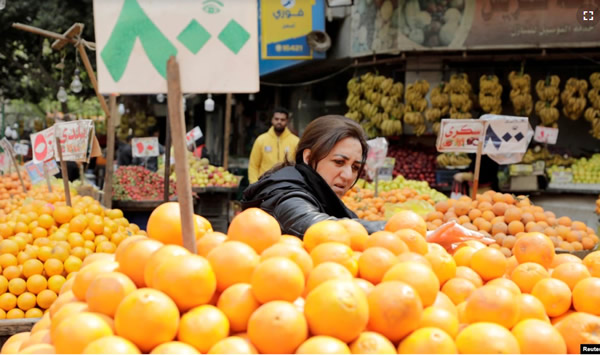
As worries mount about food shortages due to the ongoing Russia-Ukraine conflict, Egypt – the world’s largest importer of wheat – says it is preparing a series of agricultural projects to help curb food imports and provide increasingly for the domestic market in a sustainable fashion. The projects, which are part of the Egyptian government’s efforts to improve agricultural output by 2030, have been in development for several years.
Egyptian leaders recently announced the country is in the process of developing a series of agricultural projects that will increase domestic output and decrease reliance on imports of foreign agricultural products.
At the inauguration one of the new projects, President Abdel Fattah el-Sissi said water usage is a major issue in increasing production, but he said the government has found solutions to the problem.
El-Sissi said Egypt is getting the water from several main sources: some water is coming from wells, while some is coming from agricultural treatment plants that will purify the water according to WHO standards. None of the water for this project is coming from the Nile River, he added.
The project director, Bahaa el Ghannam, said that it will be carried out in four phases, noting that a special focus is being put on wheat production, given projected international wheat shortages due to the Russia-Ukraine conflict.
He said that Egypt imported $8 billion worth of wheat, corn, and soybeans in 2021 but that the agricultural projects being developed will help reduce imports and alleviate any crisis resulting from the Russia-Ukraine conflict or COVID-19. Wheat cultivation, he added, is due to increase from 40,000 acres this year to 120,000 in 2023.
Egyptian political sociologist Said Sadek told VOA Egypt will “overcome wheat shortages by producing more wheat and diversifying its imports,” but that there could be potential problems in 2023 “if the Ukraine conflict continues and climate change affects wheat producing countries.”
Sadek pointed out that some North African countries like Algeria “buy their wheat from Russia,” and are “less likely to have a shortage.” Morocco, on the other hand, he said, “is having climate problems,” which “could affect production.”
Ahmed Abou Yezid, a professor at Ain Shams University’s agricultural college, told Egyptian TV the government is “implementing a strategy of developing all the infrastructure for the new agricultural projects, including water and electricity.”
Saudi-owned al Arabiya TV reported that the new Dabaa agricultural project located between Giza and Alexandria will increase cultivation of wheat, potatoes, sunflower oil, sugar beets, along with other vegetables.
Paul Sullivan, a Middle East analyst at the Atlantic Council, said countries like Egypt could conceivably increase production.
“There is always hope for increasing agricultural output but it would be best to have land- and water-efficient crops,” he said. “Hybrid varieties that can prosper in hotter and drier weather would also help.”
Sullivan argues that the Egyptian government “will do what it can to alleviate any shortages, but that may not keep food inflation at bay given the world’s wheat situation.” He blamed Russia for preventing “wheat from leaving Ukraine and the Black Sea [as] the main culprit for wheat prices and shortages in the world.”
Source: voanews.com























